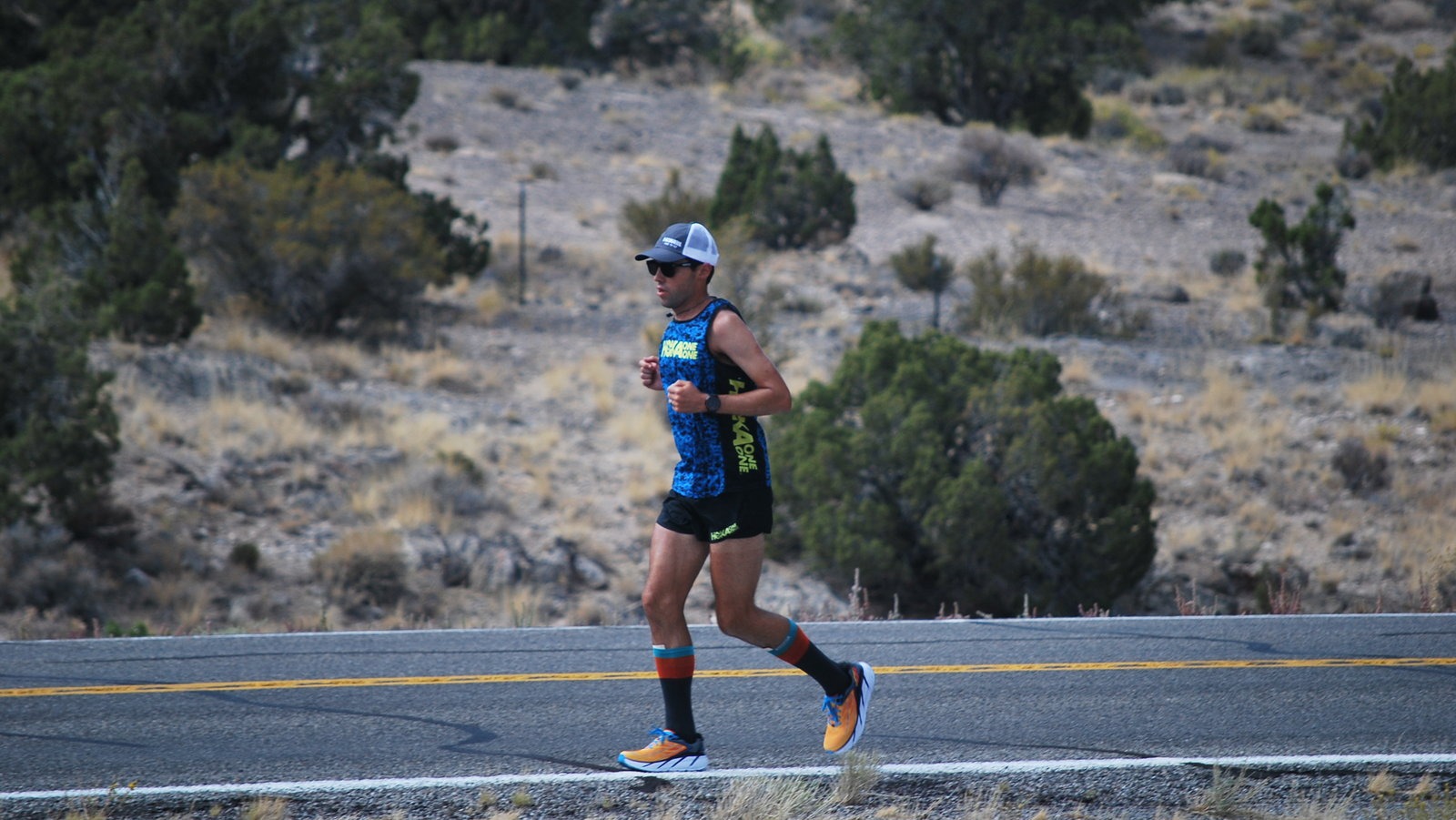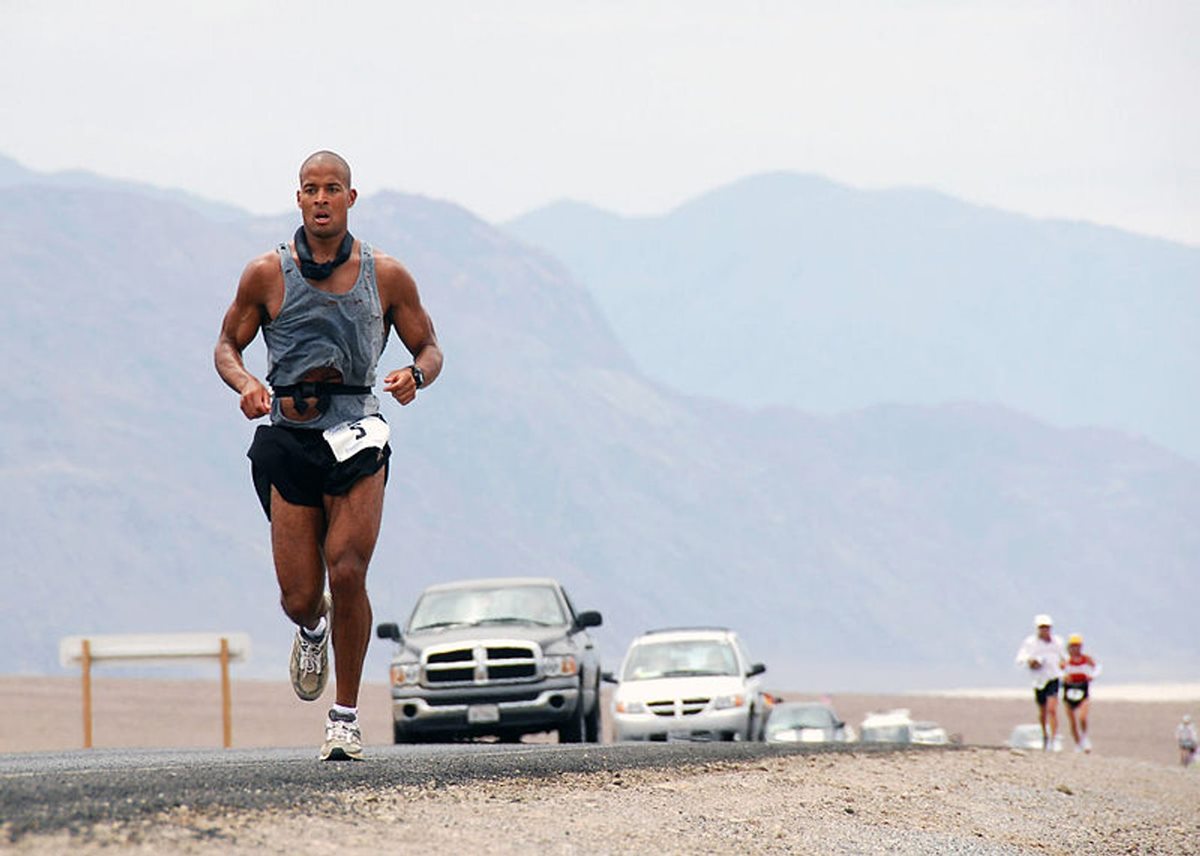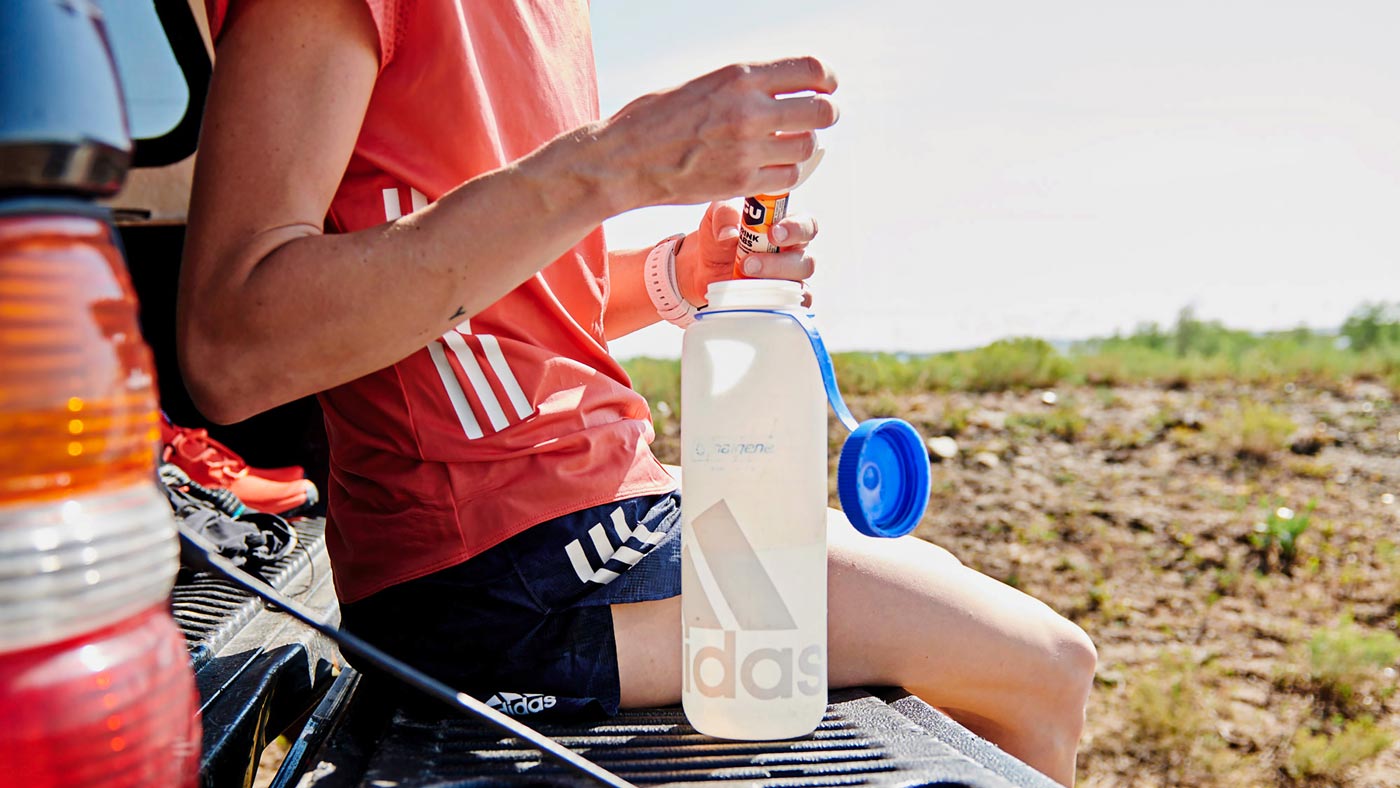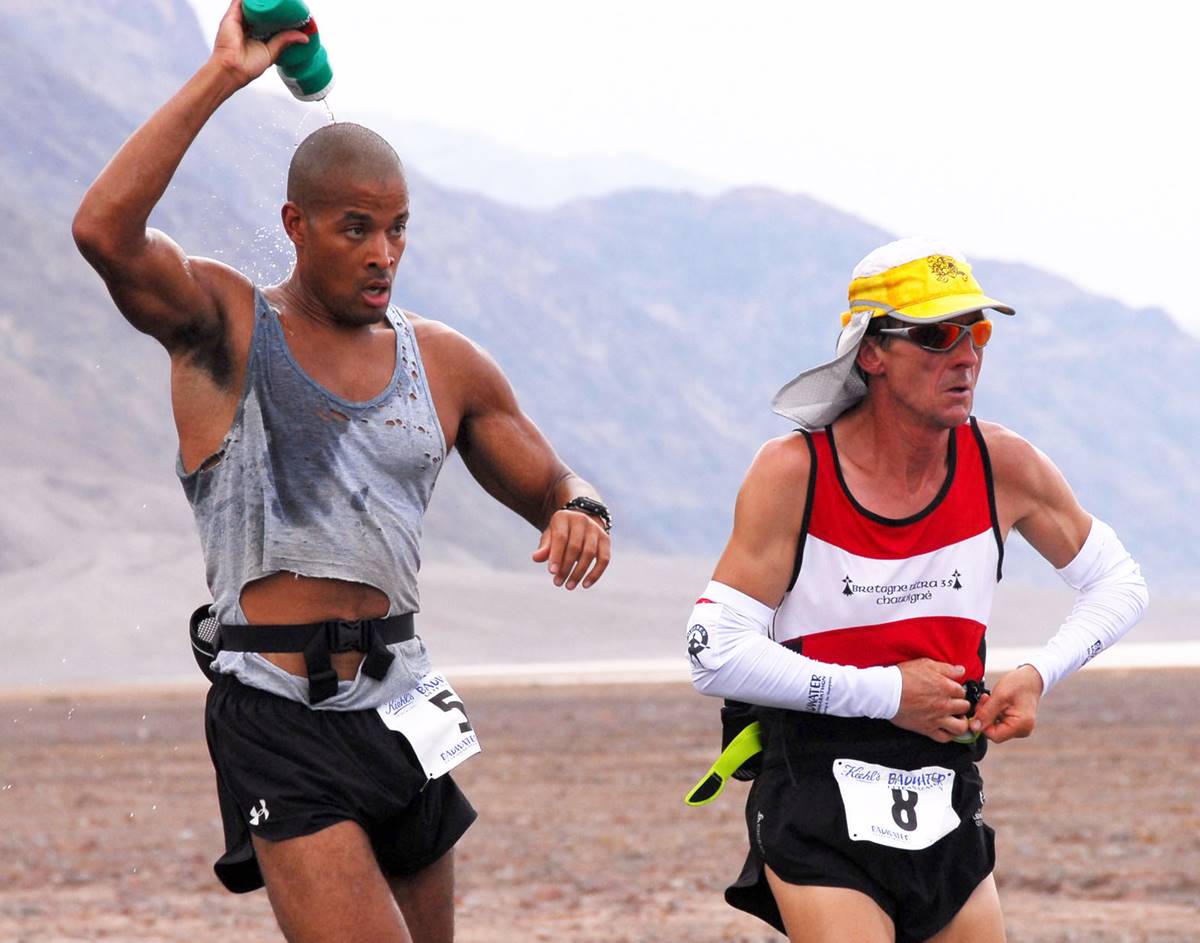Home>Misc>Featured>What To Eat And Drink During An Ultramarathon
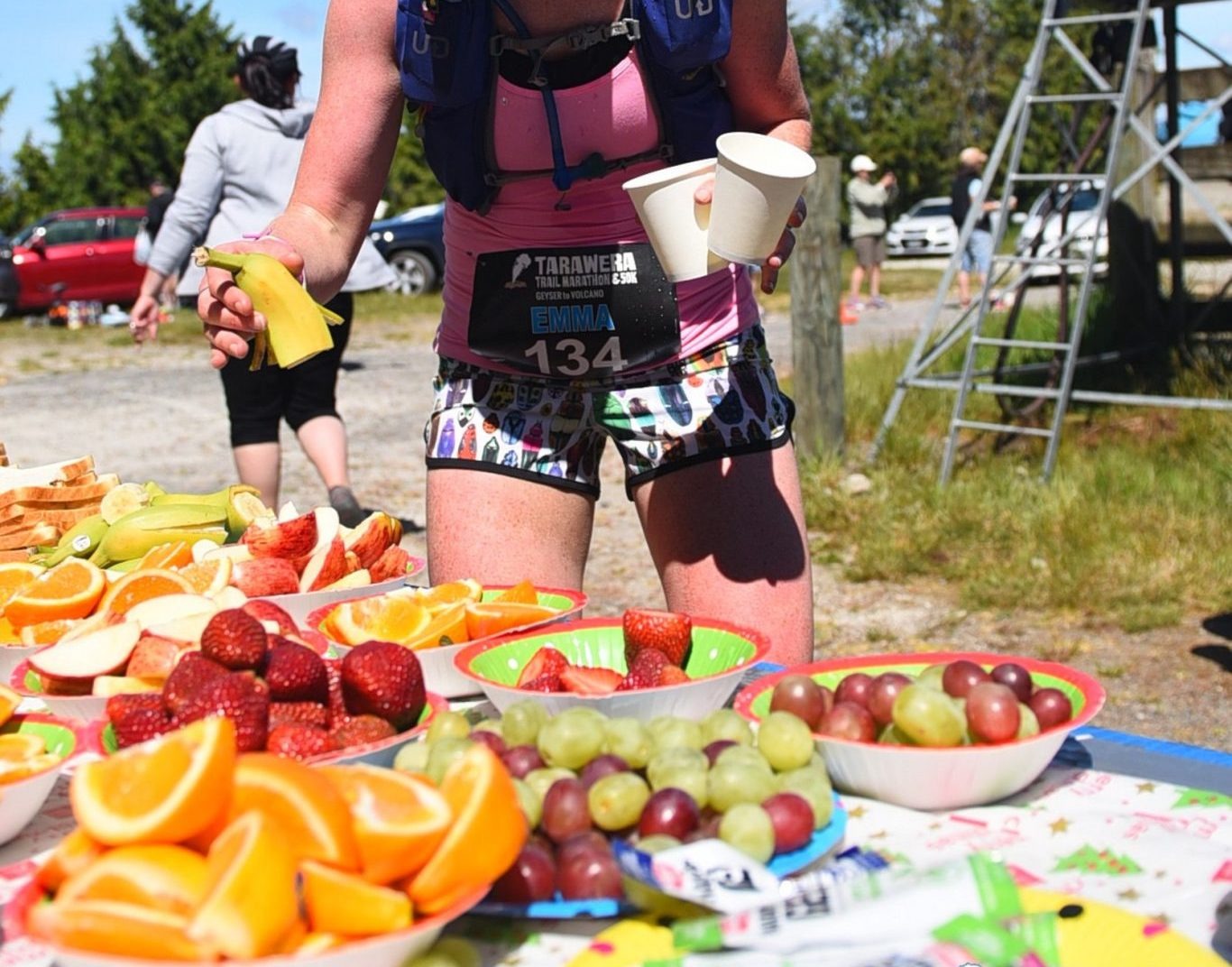

Featured
What To Eat And Drink During An Ultramarathon
Modified: January 2, 2024
Discover the top food and drink choices for a successful ultramarathon. Get featured nutrition tips and fuel your performance to conquer the race.
Introduction
Participating in an ultramarathon is an extraordinary test of physical endurance and mental strength. Whether you’re a seasoned runner or a beginner taking on this daunting challenge, proper nutrition and hydration play a crucial role in helping you reach the finish line strong and healthy.
During an ultramarathon, your body goes through significant physical and biochemical stress, requiring a well-balanced diet and adequate hydration to sustain your energy levels and help prevent muscle fatigue. This article will provide you with valuable insights into what to eat and drink during a ultramarathon, ensuring that you optimize your performance and recovery.
While there’s no one-size-fits-all approach to nutrition during an ultramarathon, certain principles can guide you in making the best choices for your body. It’s important to remember that everyone’s nutritional needs differ, so it’s crucial to experiment and find what works best for you through training and race day simulations.
Throughout this article, we’ll explore key aspects of fueling your body for an ultramarathon, including pre-race nutrition, hydration strategies, fueling during the race, electrolyte replacement, recovery nutrition, and foods to avoid. By understanding these essential elements, you’ll be better equipped to create a personalized nutrition plan that helps you maximize your performance and achieve your goals.
Now, let’s dive into the details of what to eat and drink during an ultramarathon to unlock your full potential on race day.
Pre-Race Nutrition
Proper pre-race nutrition is essential for fueling your body and priming it for the intense physical demands of an ultramarathon. Your goal should be to consume a well-balanced meal that is easily digestible and provides sustained energy throughout the race.
About 3-4 hours before the race, opt for a meal that includes a combination of carbohydrates, proteins, and healthy fats. Carbohydrates, such as whole grains, fruits, and vegetables, are the primary source of energy and should make up the bulk of your meal. Include lean proteins like chicken, fish, or tofu to aid in muscle repair and recovery. Healthy fats from sources like nuts, seeds, or avocado can help provide additional energy.
It’s important to experiment with different foods during your training to determine what works best for your body. Stick to foods that you know are easy to digest and won’t cause any gastrointestinal distress. Avoid high-fiber or greasy foods that can lead to digestive issues during the race.
Additionally, ensure that you stay well-hydrated before the race. Drink plenty of water and consider consuming electrolyte-rich fluids or sports drinks to replenish your electrolyte levels, as sweating can cause imbalances in sodium, potassium, and other minerals. Proper hydration is crucial for preventing cramps and maintaining optimal performance.
Finally, do not forget to have a pre-race snack about 30-60 minutes before the starting time. This snack should be easily digestible and provide a quick boost of energy. Some great options include a banana, energy gels, or a small piece of energy bar.
Remember that pre-race nutrition is not a one-size-fits-all approach. What works for one person might not work for another. It’s essential to find a pre-race meal and snack routine that works best for you through trial and error during your training period.
By paying attention to your body’s needs and fueling it appropriately before the race, you’ll be setting yourself up for success on race day.
Hydration Strategies
Proper hydration is crucial for maintaining optimal performance and preventing dehydration during an ultramarathon. While it is important to consume fluids throughout the race, developing a hydration strategy that works for you is equally important.
Start hydrating well before the race begins. Aim to drink at least 16-20 ounces of water or a sports drink 2-3 hours before the start time. This will help ensure that your body is well-hydrated, and your urine is pale yellow. It’s a good idea to continue sipping on fluids leading up to the race to maintain hydration.
During the race, it’s essential to have a hydration plan in place. The general guideline is to consume about 6-8 ounces of fluid every 20 minutes. However, individual hydration needs may vary depending on factors such as sweat rate, weather conditions, and body size.
Water is a good choice for shorter races or cooler weather. However, for longer races or in hot and humid conditions, electrolyte replacements drinks or sports drinks are beneficial. These beverages can replenish the electrolytes lost through sweat and help maintain proper hydration balance.
In addition to fluids, you can also consider consuming foods with high water content like slices of watermelon or oranges during aid station stops. These provide not only hydration but also a quick source of energy.
It’s important to not rely solely on thirst as an indicator of when to drink. Dehydration can impair performance and lead to cramping or other more severe health issues. Set a timer or use a hydration reminder app to ensure that you’re consistently drinking fluids throughout the race, even if you don’t feel thirsty.
Lastly, be aware of the signs of dehydration, such as a dry mouth, dizziness, dark urine, or excessive fatigue. If you experience any of these symptoms, it’s crucial to address your hydration needs immediately by drinking fluids or seeking medical assistance if necessary.
Remember, proper hydration is key to performing your best during an ultramarathon. Develop a hydration strategy that works for you, and pay attention to your body’s signals to ensure optimal performance on race day.
During the Race Fueling
Fueling properly during the race is essential to keep your energy levels stable and maintain optimal performance. While individual fueling needs may vary, there are some general guidelines that can help you stay fueled and energized throughout the race.
First, it’s crucial to consume a mix of carbohydrates and a small amount of protein to provide sustained energy and aid in muscle repair. Carbohydrate-rich sources such as energy gels, energy bars, or dried fruits are popular choices during an ultramarathon due to their convenience and quick absorption.
The timing of fueling is also important. Aim to consume small portions of fuel every 30-45 minutes to maintain a steady flow of energy. Listen to your body’s cues and adjust the frequency and amount of fuel accordingly. It’s better to fuel regularly in smaller quantities than waiting until you feel fatigued or depleted.
Experimentation and practice during your training runs are crucial to finding the fuels that work best for you. Test out different options such as sports drinks, gels, chews, or real foods like bananas or peanut butter sandwiches to see what sits well with your stomach and provides the energy you need. Everyone’s digestive system is different, so find the combinations that work best for you.
Don’t forget about hydration during your fueling strategy. Aim to consume small sips of fluid along with your fuel to maintain proper hydration levels. This will help to prevent dehydration and keep your body functioning optimally.
Lastly, pay attention to any signs of gastrointestinal distress during the race. If you experience stomach cramps, nausea, or other digestive issues after consuming fuel, adjust your plan and try alternative options. It’s best to have a backup plan in case your initially chosen fuel doesn’t work well for you on race day.
Remember, during the race, fueling should be a consistent and strategic process. Find the right combination of fuels that provide you with sustained energy, listen to your body’s needs, and make adjustments as necessary to execute a successful race.
Electrolyte Replacement
During an ultramarathon, intense physical exertion and sweating can lead to electrolyte imbalances in your body. Electrolytes, such as sodium, potassium, calcium, and magnesium, play a vital role in regulating fluid balance, muscle function, and nerve transmission. Maintaining proper electrolyte levels is crucial for optimal performance and preventing muscle cramps or fatigue.
There are several ways to replace electrolytes during an ultramarathon:
1. Sports Drinks: Sports drinks specifically formulated for endurance activities often contain electrolytes like sodium and potassium. These beverages can help replenish electrolyte levels and provide hydration at the same time. Look for drinks that have a balanced electrolyte profile and avoid those with excessive amounts of sugar.
2. Salt Tablets: Salt tablets are a popular choice for electrolyte replacement, especially for those who prefer to control the dosage. They typically contain a combination of sodium and other essential electrolytes. Remember to follow the recommended dosage and drink plenty of water when taking salt tablets.
3. Electrolyte Supplements: Electrolyte supplements in the form of powders or capsules are available, allowing you to easily incorporate them into your hydration plan. These supplements can be handy during long races or in hot weather when sweat loss is more significant.
4. Real Foods: Some ultra runners prefer to replenish electrolytes through real foods that naturally contain electrolytes. Options include bananas, avocados, coconut water, and pickles. These foods not only provide electrolytes but also offer other nutrients and energy.
The key is to listen to your body and pay attention to any signs of electrolyte imbalance. Signs of electrolyte deficiency may include muscle cramps, dizziness, confusion, or irregular heartbeat. If you experience any of these symptoms, it’s important to address your electrolyte needs immediately by incorporating one or more of the aforementioned methods.
Remember, electrolyte replacement is essential for maintaining proper fluid balance and muscle function during an ultramarathon. Finding the right approach for you may require some trial and error during training, so be sure to test different strategies and products to determine what works best for your body.
Recovery Nutrition
Proper recovery nutrition is crucial for optimizing muscle repair, replenishing energy stores, and reducing the risk of injury or fatigue after completing an ultramarathon. Paying attention to what you eat immediately after the race and in the hours following can expedite your recovery process and help prepare your body for future training.
First and foremost, replenishing glycogen stores is a top priority. Glycogen is the stored form of carbohydrates in your muscles and provides energy for endurance activities. Consuming carbohydrates soon after the race will kickstart the glycogen replenishment process. Aim to consume high-quality carbohydrates like whole grains, fruits, and starchy vegetables to help refuel your muscles.
Prioritizing protein intake is also essential for the recovery process. Protein aids in muscle repair and growth, helping your body bounce back from the exertion of the race. Lean sources of protein such as chicken, fish, eggs, or plant-based options like tofu or legumes are excellent choices.
In addition to carbohydrates and proteins, it’s crucial to consume adequate fluids to rehydrate your body. Drinking water, sports drinks, or electrolyte-rich fluids can help replace the fluids lost during the race and restore electrolyte balance.
Furthermore, including anti-inflammatory foods in your recovery nutrition can help reduce muscle soreness and inflammation. Foods rich in omega-3 fatty acids, such as fatty fish or flaxseeds, as well as fruits and vegetables with high antioxidant content, can aid in the recovery process.
Timing is also important when it comes to recovery nutrition. Try to consume a recovery meal or snack within 30-60 minutes after the race to kickstart the recovery process. This window of time is when your body is most receptive to absorbing nutrients and beginning the repair process.
Lastly, listen to your body’s signals of hunger and fullness. It’s natural to have an increased appetite after an ultramarathon, and that’s a sign that your body needs fuel to repair and recover. However, be mindful of choosing nutrient-dense foods rather than indulging in empty calories.
Remember, recovery nutrition is just as important as pre-race and during-race nutrition. Prioritize carbohydrates, proteins, fluids, and anti-inflammatory foods to optimize your recovery and get back to training feeling strong and rejuvenated.
Foods to Avoid
While it’s important to focus on what to eat and drink during an ultramarathon, it’s equally crucial to be aware of certain foods that you should avoid before and during the race. These foods can potentially lead to gastrointestinal distress, energy crashes, or hinder your overall performance.
1. High-Fiber Foods: Foods that are high in fiber, such as beans, lentils, or whole grains, are beneficial for overall health but can cause digestive issues during intense exercise. They can lead to bloating, gas, and discomfort, which can negatively impact your performance. It’s best to avoid these foods immediately before and during the race.
2. Greasy or Fried Foods: Greasy or fried foods can be heavy and hard to digest. They can cause stomach upset and lead to energy crashes during your race. Stay away from fast food, french fries, or deep-fried snacks in the hours leading up to the race to prevent any gastrointestinal discomfort.
3. Spicy Foods: Spicy foods can irritate the stomach and lead to heartburn or acid reflux, especially during high-intensity exercise. To avoid any digestive disturbances, it’s advisable to steer clear of heavily spiced meals or foods containing excessive amounts of hot sauce or chili peppers.
4. New or Unfamiliar Foods: Race day is not the time to experiment with new or unfamiliar foods. Stick to the foods that you have tested and know work well with your body during your training period. Introducing new foods during the race can lead to unexpected digestive issues or food intolerances that you may not be prepared for.
5. Excessive Caffeine: While caffeine can provide a temporary energy boost, consuming excessive amounts of caffeine can lead to dehydration and increased heart rate. It’s best to moderate your intake of caffeinated beverages like coffee, energy drinks, or caffeinated gels during the race to prevent any negative effects.
Everyone’s tolerance to certain foods may vary, so it’s important to listen to your body and note any specific foods that you personally find problematic. Keeping a food diary during your training period can help identify any foods that may cause digestive issues or impact your performance.
By avoiding these foods and sticking to a well-balanced, easily digestible diet, you can minimize the risk of gastrointestinal discomfort and optimize your overall performance during an ultramarathon.
Conclusion
Proper nutrition and hydration are the keys to success when it comes to tackling the grueling challenge of an ultramarathon. By fueling your body with the right foods and fluids, you can optimize your performance, enhance your endurance, and expedite your recovery.
During an ultramarathon, paying attention to pre-race nutrition is essential. Consuming a well-balanced meal that includes carbohydrates, proteins, and healthy fats a few hours before the race can provide your body with sustained energy and help prevent muscle fatigue.
Hydration is another critical aspect of ultramarathon performance. Developing a hydration strategy that includes regular fluid intake and electrolyte replacement is crucial for maintaining proper fluid balance and preventing dehydration and muscle cramps.
During the race, fueling with a combination of carbohydrates and proteins at regular intervals is essential to keep your energy levels stable. Experimenting with different fuel sources during training will help you find what works best for your body.
After the race, focus on recovery nutrition to replenish glycogen stores, repair muscles, and reduce inflammation. Prioritize carbohydrates, proteins, fluids, and anti-inflammatory foods to optimize your recovery and prepare your body for future training.
Lastly, be aware of the foods to avoid before and during an ultramarathon. High-fiber foods, greasy or fried foods, spicy foods, new or unfamiliar foods, and excessive caffeine can all cause gastrointestinal distress and hinder your performance.
Remember, every runner is unique, and it’s essential to find what works best for your body through trial and error during training. Listen to your body, pay attention to its cues, and make adjustments as necessary to create a personalized nutrition plan that supports your ultramarathon goals.
By combining proper nutrition, hydration, and fueling strategies, you’ll be well-prepared to conquer the challenges that come with running an ultramarathon and achieve your personal best.

